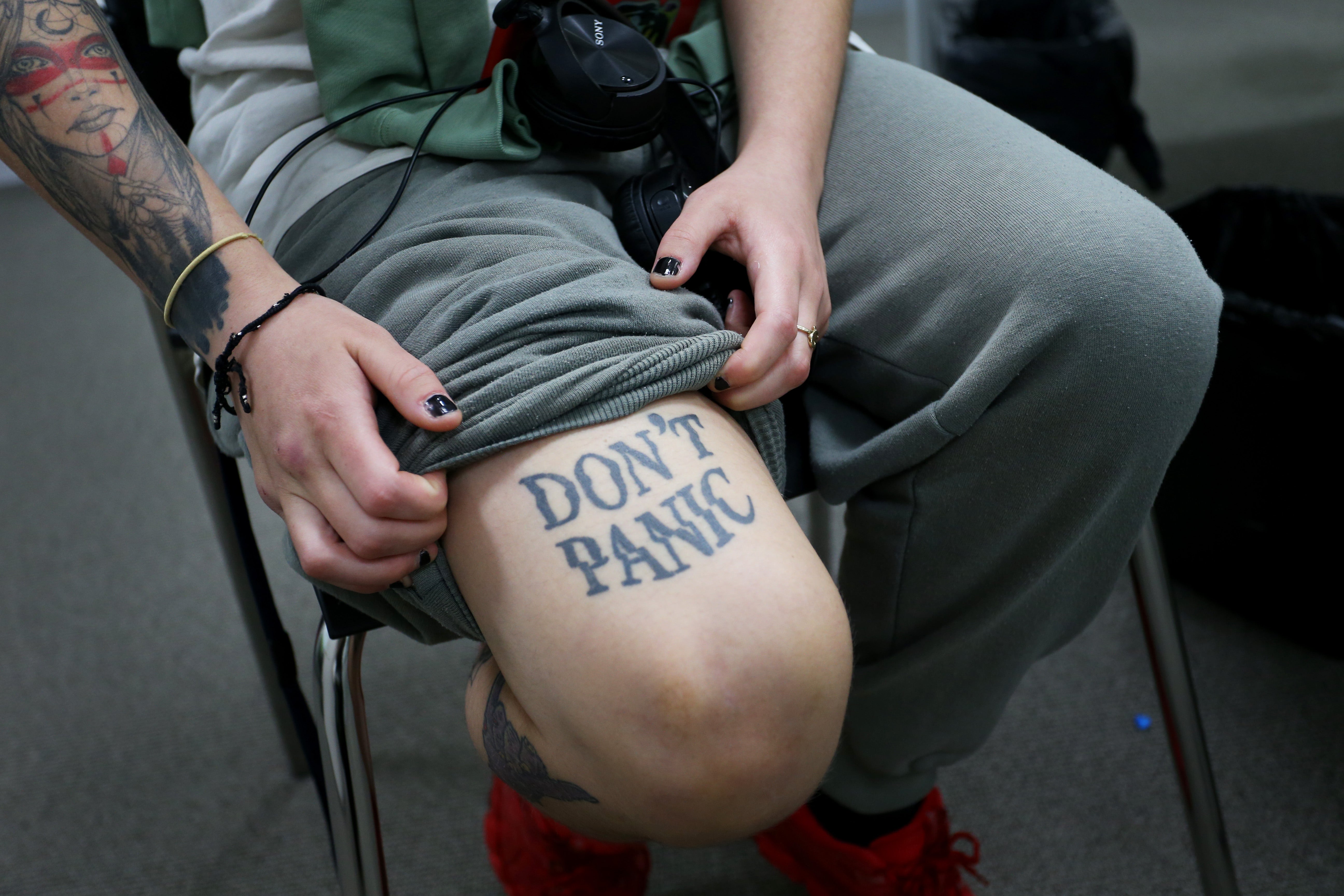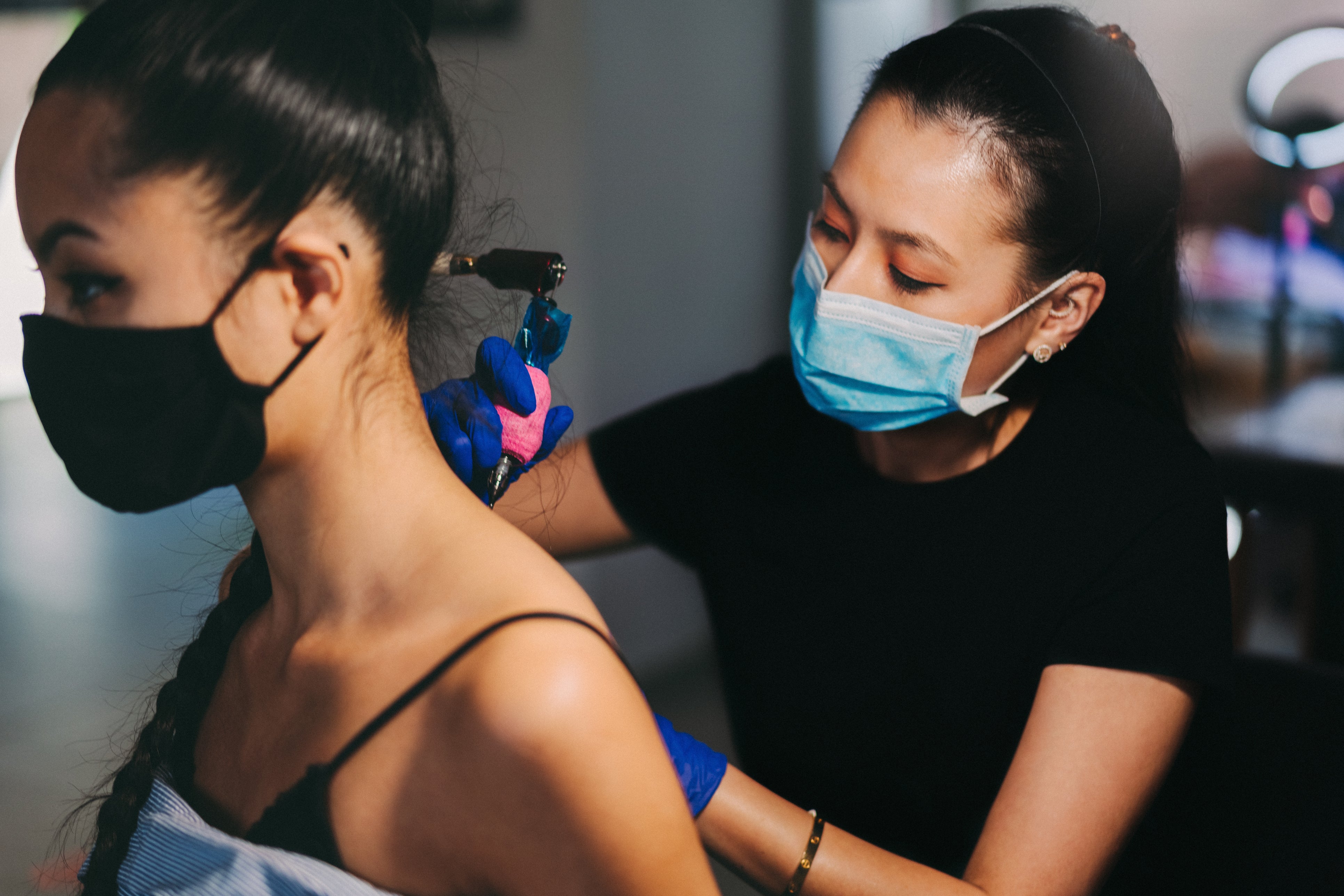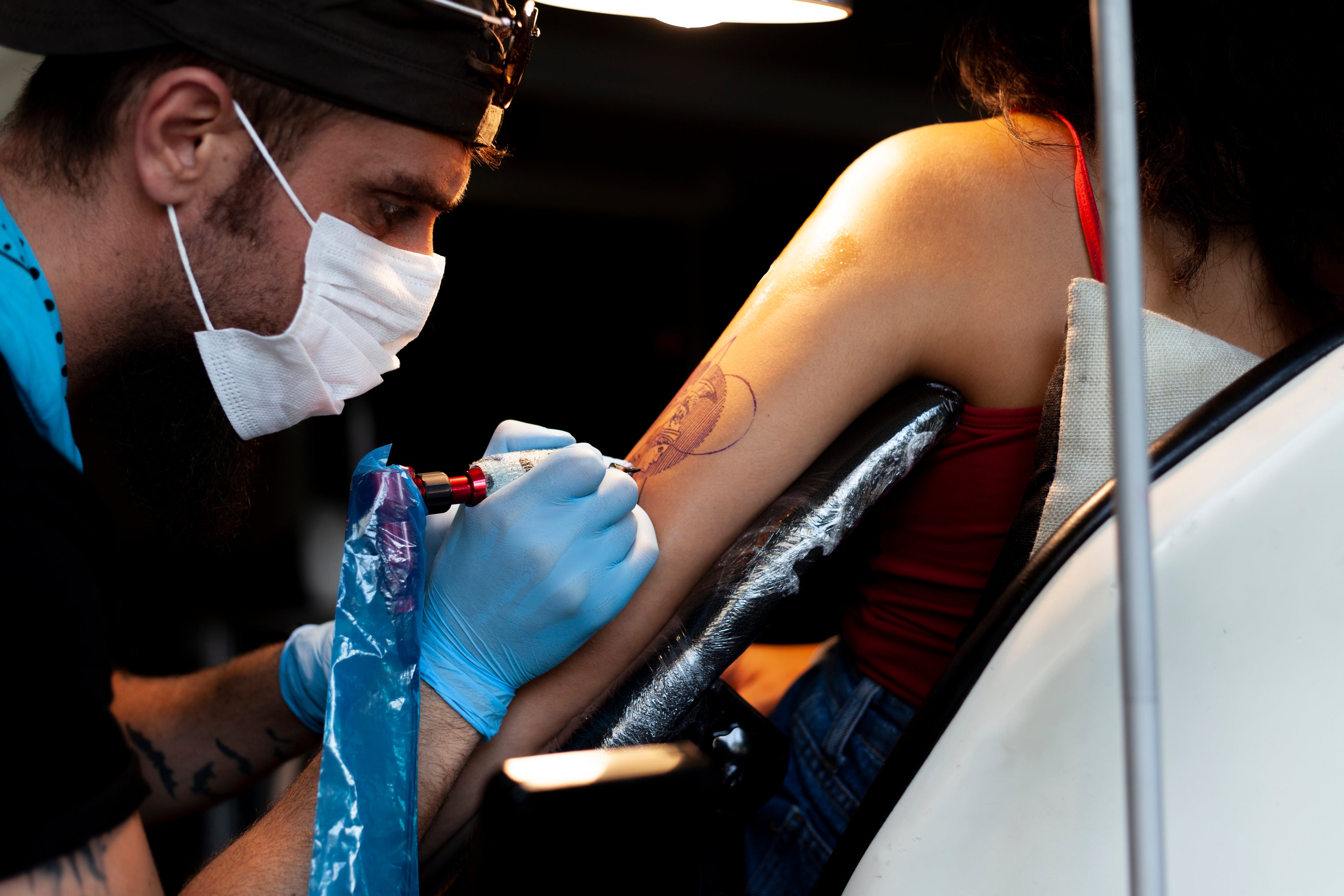Pandemic tattoos: something to remember 2020 by?
Many will want to forget the coronavirus pandemic as soon as possible, but for others getting a tattoo commemorates the experience we’ve all been through, writes Alyson Krueger

Every day during lockdown Samantha Barry, editor of Glamour magazine, walked or ran along the West Side Highway in New York City. “I would go from Chelsea to the Statue of Liberty,” she says. “This was my moment of sanity every day.”
This was the longest she had ever spent in New York City without leaving to visit her family in Ireland. During the pandemic, she developed a greater appreciation for the place that is now her home.
She has always admired tattoos. “Done right, they look a little bit like jewellery,” says Barry. But she never had a compelling idea of what to get. “It has to mean something to have it permanently etched on your body.”
Now, however, she knew exactly what she wanted: a sleek, tiny New York City skyline. Jonathan Valena, a tattoo artist known as JonBoy who works out of the Moxy Times Square hotel, tattooed it on her wrist at the end of 2020.
“We will talk about 2020 when we are old and grey, and now I have something on my body that symbolises where I was,” she says. “This is my way to recognise it.”
When these clients come into Valena’s studio, they are ready to talk. Just the process of getting a tattoo can be therapeutic
While the pandemic may be a time many want to forget, others are doing the opposite, getting tattoos to commemorate their experiences. Some are marking where they spent the year or a lesson they learned from the turmoil. Some Covid-19 survivors are getting tattoos that remind them they are alive and have strength. Some people are getting tattoos to memorialise those they lost.
These Covid-related tattoos can be meaningful not just to their owners but also to the people who see them.
“I remember the day Sam got her tattoo,” Valena says. “She represented the strength of New York and taught me I wasn’t alone.”
Barry says that many New Yorkers notice her tattoo when she’s on a Zoom call. “Everyone loves it,” she says. “They all try to pick out the buildings on the skyline.”
Valena says that 90 per cent of his clients come to him for their first tattoo, and in the aftermath of the pandemic, he’s seen a surge in requests for Covid-related designs.
When these clients come into Valena's studio, they are ready to talk. Just the process of getting a tattoo can be therapeutic.
“They tell me their stories, and I am there to listen,” he says. “I have that time with them when they can unload, and it’s pretty special.” They have an urgency to them, like they don’t want to put off getting one any longer. “People are getting words that have spoken to them, stuff like ‘surrender’ and ‘strength,’” he says. “One of my clients, his father passed from Covid, and he ended up getting a rose for him.”
For Covid survivors, getting a tattoo can be especially meaningful.

Rachael Sunshine, who lives in Coxsackie, New York, has a degenerative nerve disease, which put her at a high risk for getting a serious case of the virus. “When Covid struck, I was one of those people who were supposed to die if they caught it,” she says.
Against the odds she survived Covid not once but twice, she says. The virus damaged her heart, and she then survived heart surgery as well.
“I was hospitalised seven times,” Sunshine says.
On 26 May this year, her 44th birthday, she went to Cape Cod, Massachusetts, to celebrate surviving and got a tattoo of a heart surrounded by coronavirus spike proteins, which is the logo of Survivor Corps, a group that connects Covid-19 survivors.
“The tears were just coming down my face,” she says. “I said to the artist, ‘This has been such a long year.’ We talked for two hours about all the stuff I went through.
“My tattoo artist has now become part of my journey and my story,” she says. “We share this bond.
“People are like, ‘Why do you want this constant reminder of what you went through?” she continues. “I tell them I already have constant reminders. I have scars from getting heart surgery. I have to take medicine. I still can’t walk down the street normally. I am still battling it, so this is my warrior badge. When people 10 years from now talk about Covid, I am going to say, ‘I beat it.’”
Courtney Henley, founder of Henley Content Lab, had a less serious case. But she was still terrified when she contracted the virus in March 2020. “Every hour, I was checking my temperature, making sure I could still breathe,” she says. “I heard ambulances outside the whole time, all day every day.”
This spring, she got multiple tattoos that reminded her to celebrate every day. Among others were three black-and-white butterflies in different stages of flight and the Sanskrit symbol for “breathe”. “I want to remember to breathe more,” Henley says. “You can get so stressed you forget to breathe.”

After such a heavy year, some people are opting for more lighthearted options.
Katie Tompkins works for a medical lab in Warren, Michigan. She saw firsthand how serious and costly this pandemic was. “I worked in the lab that ran all the tests, and to see all the crazy things this virus was doing to people, it was just wild,” she says.
She will never forget what she went through. But instead of focusing on the negative, she decided to try to bring some humour to the situation and get a tattoo of toilet paper on the inside of her left elbow. “I have such memories walking into the store and there being bare shelves everywhere because everyone was stockpiling toilet paper,” she says. “It was just insane.”
It was her first tattoo, and she has bonded with strangers over it. They stop her to share their own toilet paper stories. Most important, the image makes her smile and giggle, things she wants to do more of now that she is vaccinated.
“I wanted to have something to look at and go, ‘Oh, my God, remember when all that crazy stuff happened?’” she says. “It’s my way of bringing light to a not-great situation.”
This article originally appeared in The New York Times
Join our commenting forum
Join thought-provoking conversations, follow other Independent readers and see their replies
Comments
Bookmark popover
Removed from bookmarks